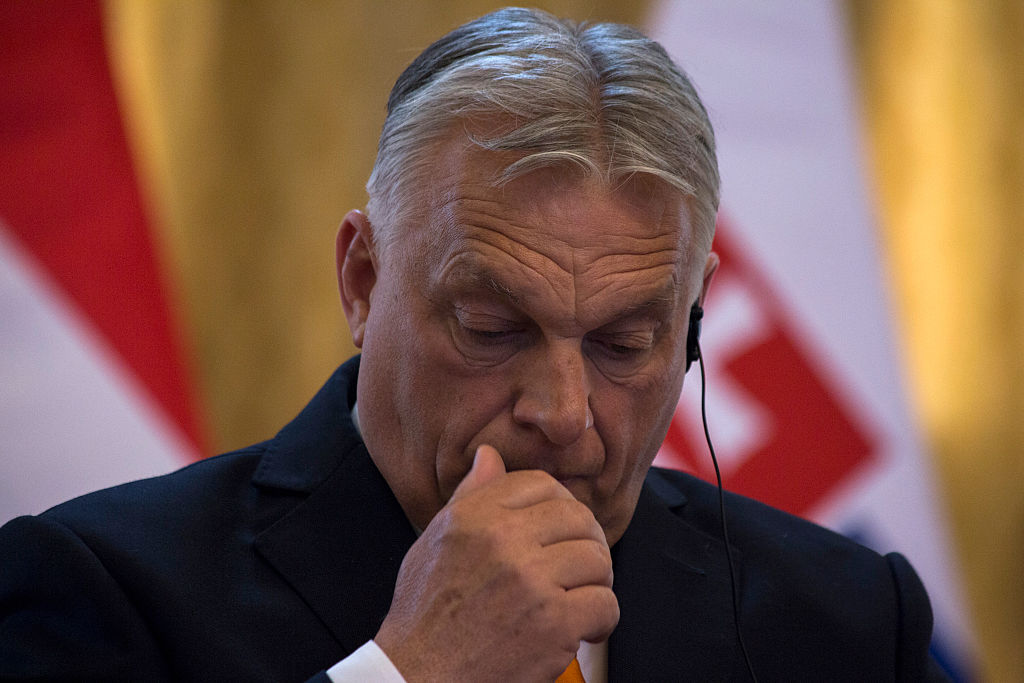Frozen cohesion funds, EU-imposed fines for breaching shared values, and global economic shifts are putting Hungary’s economy under pressure ahead of elections scheduled for 2026.
Viktor Orbán’s Fidesz party has proposed an “anti-war budget” aimed at economic stability, social well-being and confidence in the future. It focuses on supporting families with children, young people, and pensioners.
The government is planning to implement Europe’s largest family tax reduction programme, guarantee the payment of the thirteenth-month pension, protect jobs and create new ones. The upcoming budget also includes wage increases.
In a presentation in the National Assembly, Economy Minister Márton Nagy stated that approximately €12.5 billion would be spent on economic development in 2026, with around €5.71 billion coming from the EU and the rest from the domestic budget.
Regarding EU funds, the government expects planned programmes for the 2021-2027 period to proceed as scheduled. Hungary anticipates receiving €6.7 billion in payments from these programmes, and €4.4 billion in EU-related income.
At the same time, the country will contribute €1.9 billion to the common EU budget.
Budget red flags
However, Hungary’s Fiscal Council has expressed concerns about the budget, warning that it relies too heavily on overly positive assumptions about economic growth, amid uncertainties over EU funds and potential fallout from global trade tensions.
The Council points out that Hungary’s significant reliance on exports makes it vulnerable to international shocks, such as conflicts or trade wars, and argues that a budget reserve fund of €120 million for emergencies is too small.
With most EU recovery and cohesion funds currently frozen – due to Hungary’s failure to meet all the conditions tied to rule-of-law reforms – the government may face a larger budget shortfall unless it reduces spending or finds new sources of income.
Despite the concerns, the government is pushing for early budget approval, claiming it will ensure predictability. It has agreed to raise emergency reserves as advised by the Council. However, it does not intend to revise its main economic forecasts.
The Fiscal Council holds only an advisory role.
Freezing ‘all’ EU funds
Concerns about Hungary’s access to EU funding are not unfounded. In response to the recently proposed transparency law, 26 members of the European Parliament have urged the European Commission to freeze all financial transfers to Budapest.
In a letter addressed to Budget Commissioner Piotr Serafin and Rule of Law Commissioner Michael McGrath, the MEPs warn against funding a “corrupt regime that openly undermines European values”.
In addition to criticising the proposed transparency legislation, the MEPs also cite the government’s undermining of the judiciary, interference in the work of the Hungarian Integrity Authority, and the banning of the Pride march in Budapest.
“We therefore call on you to urgently withhold all funding to Hungary through all available legal instruments,” the letter states. It was signed by MEPs across the political spectrum – from the centre to the far left – with the conservative bloc pointedly absent.
Hungary is entitled to approximately €34 billion in EU cohesion funds and related financial instruments.
Hefty dues
The bill continues to grow. In April 2025, fines imposed by the EU on Hungary for failing to comply with EU migration law have reportedly exceeded €500 million. These stem from a European Court of Justice (ECJ) ruling in June 2024.
Although the Hungarian prime minister has vowed to reclaim all withheld funds, under EU law, fines are returned to the bloc’s central budget and cannot be accessed by sanctioned member states.
To make matters worse, a proposed overhaul of the EU budget is raising new concerns – not just in Hungary, but also in Slovakia. The Commission aims to redirect more funding towards defence, climate action, and digital innovation.
This proposal also includes stricter conditions tying EU funds to democratic standards. It could result in less funding for poorer countries that rely heavily on cohesion funds to support development and infrastructure.
This could further complicate Hungary’s position, given persistent criticism of its government.
Orbán still defiant
The Hungarian prime minister appears to be aware of the risks. He has acknowledged that the country’s economic difficulties are far from over and may persist into 2026, when Hungary is scheduled to hold both general and local elections.
According to Bloomberg, Hungary is facing significant fiscal stress, with a budget shortfall of over $8 billion in the first four months of 2025, well above the government’s initial expectations.
In response, the government has moved to freeze certain public expenditures to contain the deficit and maintain fiscal discipline. Orbán has blamed the ongoing war in Ukraine for Hungary’s economic challenges.
The Hungarian prime minister now finds himself in an increasingly precarious position, dealing with rising inflation, stagnating growth, a weakening forint, and billions of euros in frozen EU funds.
Rather than seek compromise, however, Orbán appears to be giving the EU more reasons to isolate his government.
[Edited By Brian Maguire | Euractiv’s Advocacy Lab ]
